This is the newsletter version of Sara by the Season, where I explore a little bit of everything that’s on my mind as I try to lean into nature’s wisdom and rhythms. You can listen to me read you the newsletter by hitting play above - or you can click the little link above right to play in your favorite podcast player. If you know someone who would like this sort of thing, I’d be so grateful if you would share it!
Pardon my unintentionally long summer break - our family’s middle world has been especially bananas these last few months. I haven’t felt much like writing, but I’m trying to show back up here anyway.
I picked up this book at the library a few months ago based solely on the title: I Didn't Do the Thing Today: Letting Go of Productivity Guilt by Madeleine Dore. I was expecting to flip through it, thinking it would be just another self-helpy book, but I ended up reading the whole thing and taking plenty of notes. In her chapter on the pitfalls of expectations, Dore writes, “we make the mistake of labeling ourselves as nouns, when we are really verbs—we are not a runner, but rather a person who runs; we’re not a writer, but a person who writes. Our sense of self doesn’t have to be bundled up with whether we did the thing today—because we are not the things we do.”
This goes against a ton of anecdotal wisdom: “we are what we repeatedly do;” just about every quote on any motivational poster you’ve ever seen, and famous habit-writer James Clear even says that connecting your identity to your habits is a key to habit-keeping-success.
But Dore’s warning rings truer for me. We aren’t static nouns, so much as dynamic verbs - one hopes anyway. I love the freedom Dore’s labeling offers instead of the strict confines of noun-based characterizations. If we offered ourselves the flexibility to pursue our curiosities instead of sticking to some set of standards (usually set upon us by someone else), we would likely learn much more about ourselves and the world around us. We would know what works best for us instead of assuming what worked for our parents, our friends, or the latest self-help writers will work for us. We would be more open to trying new things, to questioning our assumptions, and to evolving into new versions of ourselves.
Living in tune with the seasons teaches us this lesson too. There are seasons for running and writing and seasons for resting and creating; seasons for healing and seasons for launching. One isn’t better than the other. The fallow seasons are no less beautiful, necessary, and life-giving than the abundant seasons. What we do - repeatedly or not - does not make us any more or less worthy of love, belonging, and compassion. We know this. We probably teach this to our children. And yet, we judge and critique ourselves endlessly by this tidy list of things we did and didn’t do today that lives in our heads (or at least it lives in mine).
The version of capitalism we’re living under finds it profitable to flatten us into certain static identities, into nouns. Nouns can be categorized, marketed to, defined, and managed. Verbs are messier, less clear, more wild.
Dore’s advice reminded me of Braiding Sweetgrass, in which Robin Wall Kimmerer tells the story of learning her native Potawatomi and discovering that it (like most indigenous languages) is a language of verbs. Where English is about 30 percent verbs, Potawatomi is 70 percent verbs. Elsewhere, Kimmerer writes about what Potawatomi offers us :
The language that my grandfather was forbidden to speak is composed primarily of verbs, ways to describe the vital beingness of the world. Both nouns and verbs come in two forms, the animate and the inanimate. You hear a blue jay with a different verb than you hear an airplane, distinguishing that which possesses the quality of life from that which is merely an object. Birds, bugs, and berries are spoken of with the same respectful grammar as humans are, as if we were all members of the same family. Because we are. There is no it for nature. Living beings are referred to as subjects, never as objects, and personhood is extended to all who breathe and some who don’t. I greet the silent boulder people with the same respect as I do the talkative chickadees.
It’s no wonder that our language was forbidden. The language we speak is an affront to the ears of the colonist in every way, because it is a language that challenges the fundamental tenets of Western thinking—that humans alone are possessed of rights and all the rest of the living world exists for human use. Those whom my ancestors called relatives were renamed natural resources. In contrast to verb-based Potawatomi, the English language is made up primarily of nouns, somehow appropriate for a culture so obsessed with things…
English has come to be the dominant language of commerce, in which contracts to convert a forest to a copper mine are written. It’s just the right language for the purpose, because the forest and the copper ore are equivalent “its.” English encodes human exceptionalism, which privileges the needs and wants of humans above all others and understands us as detached from the commonwealth of life.
Perhaps thinking of ourselves and others as verbs instead of nouns isn’t just generally good for breaking up with the cult of productivity, as Dore asserts; perhaps, as Kimmerer contends, it is a larger counter-cultural act that opens our eyes to our inter-connectedness with the human and more-than-human-world, with our own imaginations, and with our innate desire to grow and evolve. It’s an invitation to being open instead of closed off, to curiosity instead of complacency, to compassion instead of judgement, to sovereignty instead of submission.
Just raves this week
👍 The August garden. It’s exploding, but I’m still quasi-on top of things. The August garden is the best garden.
👍 I know it’s so childish, but the memes and jokes about the Mar-a-Lago raid are giving me so much life this week. Send them all my way please. This was by far the most worth your time. Grant, in his text when he sent it to me, “this is the best thing I’ve watched in 2022.”
👍 Recapture the Rapture: Rethinking God, Sex, and Death in a World That's Lost Its Mind. Here is my Instagram review of the book. I listened to this on Scribd, which is also a 2022 rave. (I originally subscribed for some hard-to-find reading for Seminary on the Wild, but I found it worthwhile enough to keep it up. I did find a deal, so maybe worth waiting for those.)
Stuff worth sharing this week:
I found this via Ask Polly, and the song immediately got added to our 2022 playlist.
As usual, Virginia Sole-Smith making me think - this time about where diet culture shows up for me (plus another systems problems entry).
John Green FTW:

Cheers to evolving in the week ahead,
Sara

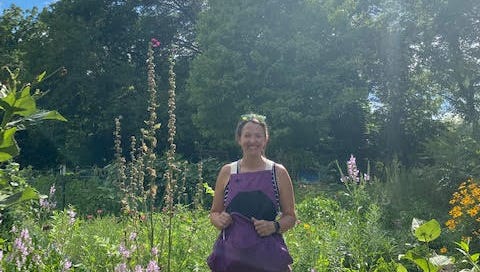




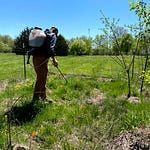
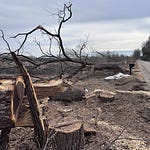

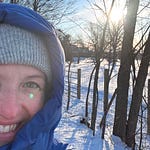
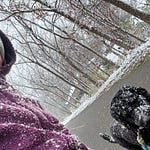
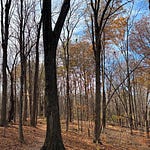
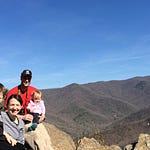
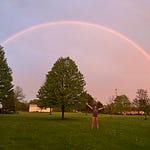
Share this post